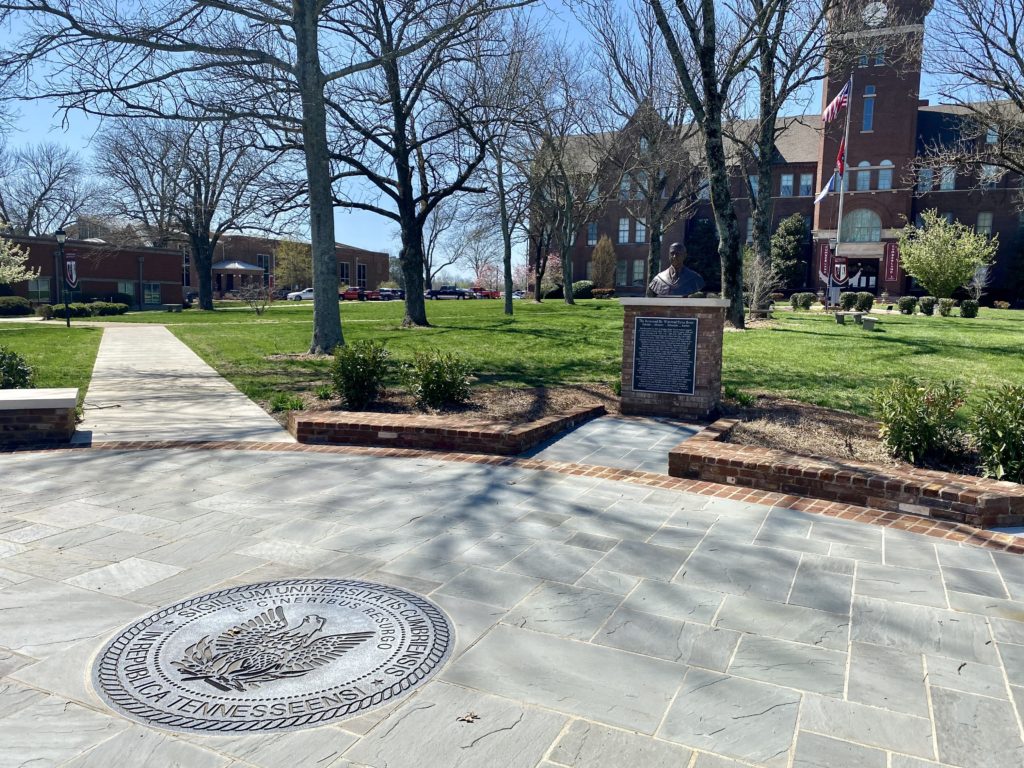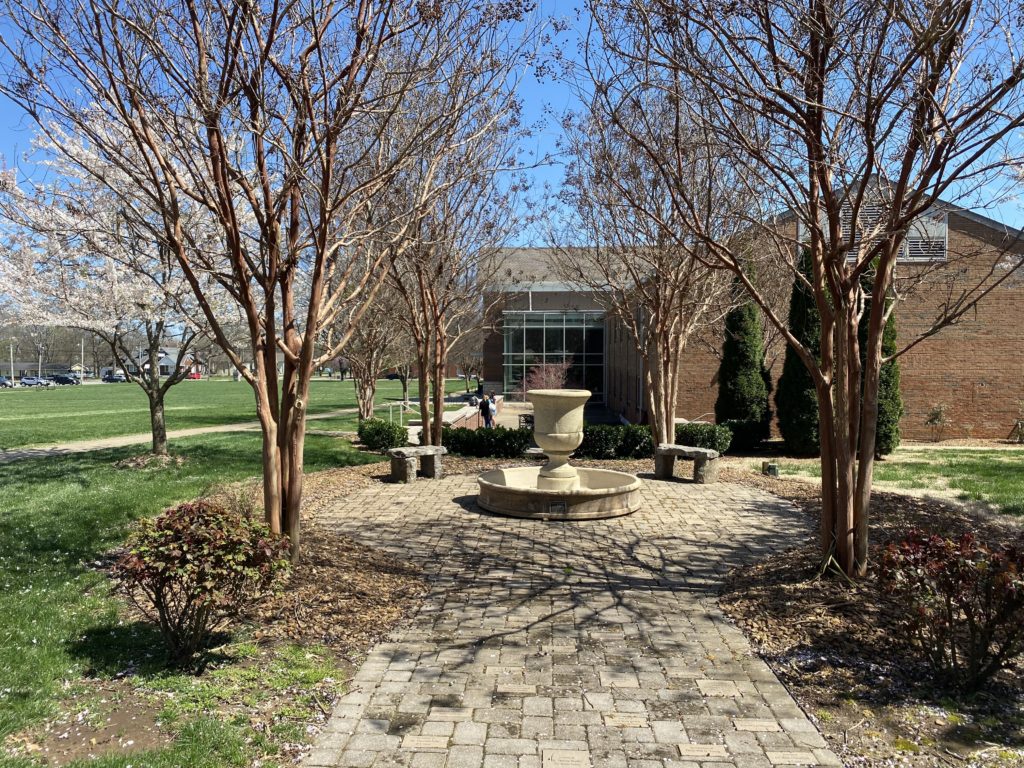
Tennessee’s effort to get new high school graduates to enroll in college by the next fall — and keep them enrolled afterward — has slowed. Tennessee Promise applications and enrollment have increased overall since 2015, but the rate of high schoolers going to college immediately after graduation has slightly decreased.
There has, however, been some success at Cumberland University in Lebanon.
Tennessee Promise was part of former Gov. Bill Haslam’s push for more Tennesseans to get higher education degrees.The state launched the last-dollar scholarship in 2015. It pays for students to earn a two-year college degree.
The first cohort attracted more than 57,692 applicants, with more than 16,000 students enrolling in a college that accepts the scholarship. Nearly 70 students in that first class went to Cumberland.
 Damon Mitchell WPLN News
Damon Mitchell WPLN NewsFounded in 1842, Cumberland University is a small, private college in Lebanon, Tenn. The campus is decorated with small statues and other markers.
By last fall, the number of Tennessee Promise students at the university had grown to more than 800 students. About half of those students are first-time, full-time freshman.
“One of the things that we’ve been really focused on, and that I believe we’ve done really well, is to retain our Tennessee Promise students,” said Paul Stumb, the president at Cumberland.
Stumb says one reason for the university’s success is it’s one of the few four-year institutions to embrace the program. In addition, he says, the college isn’t an open-access institution. This has allowed the university to enroll students it feels are the best fit.
“If you contrast us with a community college, a two-year school, we appear favorable in many ways, and we are,” he said.
Cumberland offers an associate’s degree with the full experience of being on a college campus, a rarity for Tennessee Promise students. Many of them enroll in community colleges and technical institutions. Those tend to offer fewer resources, social activities and support.
The university also has an active Greek life and on-campus housing. This is in addition to a dedicated office to support scholarship students.
Providing support to students
“I do know with biology, I wasn’t doing the best in it the first time I took it,” said Lauren Bonner, a sophomore at Cumberland, who’s pursuing a career in nursing.
Bonner says keeping her Promise scholarship requires satisfying a strict enrollment, community service and grade point average requirement. So she sought out the university’s scholarship office to get help with managing her classes, work and social life.
“That really helped me — you know, being a student, going to work and wanting to pass these classes to become a nurse,” said Bonner.
She also says she’s noticed that she gets support as a Tennessee Promise student at Cumberland that some of her other friends enrolled in the program don’t receive at their colleges.
 Damon Mitchell WPLN News
Damon Mitchell WPLN NewsLauren Bonner is a sophomore at Cumberland University. She’s planning to become a nurse.
Since its inception, Tennessee Promise has enrolled more than 100,000 students, covering more than $100 million in education costs.
According to the Tennessee Comptroller of the Treasury, the state’s college-going rate is currently 61.8%. But the program has been unable to attract recent high school graduates the same way it did in its first year. In 2015, the college-going rate jumped from 58.6% to 64.4%.
New students are also more likely to drop out than the first wave of participants.
But the retention rates at Cumberland have been higher than the statewide average. The university was also able to increase access for male high school graduates, despite statewide and national decreases in male enrollment immediately after graduation.
“That is notable,” Steven Gentile, the chief policy officer at the Tennessee Higher Education Commission, says of the state’s declining college-going rate. “But that measure itself is very volatile.”
The drop, he says, could reflect a multitude of factors, including a better job market. He adds that the small decline isn’t a huge concern. The state’s college-going rate is still higher than it was before Tennessee Promise was implemented.
But Gentile also says that attracting new high school graduates will require colleges to offer more support to students.
“Institutions that succeed well with these students are providing support at the level Tennessee Promise requires and then some more,” he said.
In general, he says, increasing the college–going rate will require more colleges to copy the practices of schools like Cumberland University.
 Damon Mitchell WPLN News
Damon Mitchell WPLN NewsA row of lawn chairs decorated by sororities and fraternities brighten the outside of Cumberland University’s dining hall.

